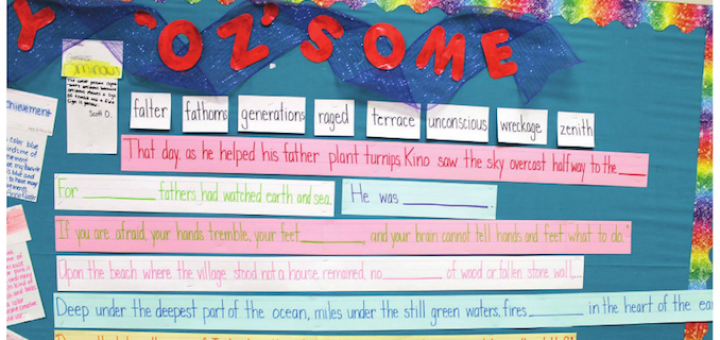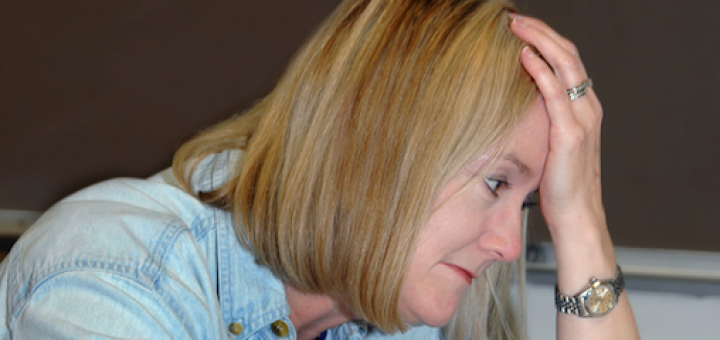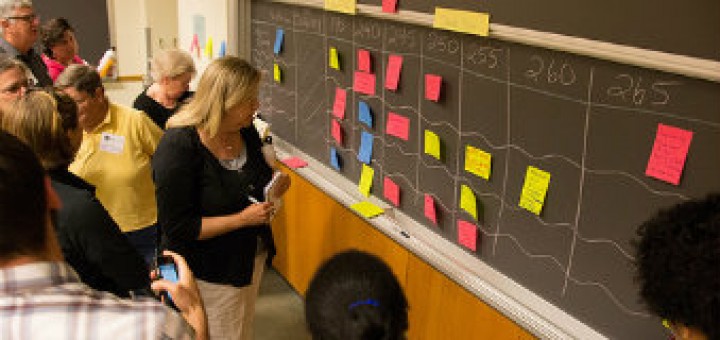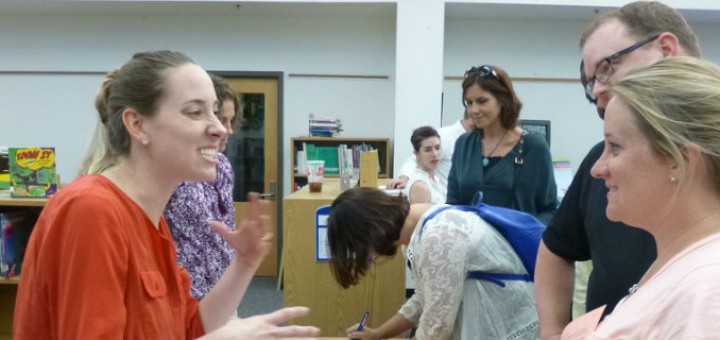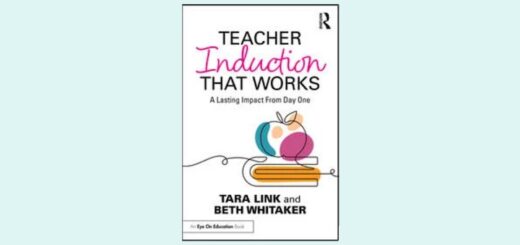Teaching and learning in grades 4-8
Should the curriculum in a co-teaching classroom setting look different from a typical general education classroom? That’s the most frequently asked question co-teacher coach Elizabeth Stein encounters about inclusive classrooms. The answer? Read on.
Vocabulary knowledge is the heart of reading comprehension and academic achievement, says literacy consultant Brenda Overturf, “and it means way more than just learning words.” Students must have the tools to decipher unknown academic words. She shares three of the best.
The expectation among non-educators seems to be that if teachers would just do their jobs, the supply of STEM professionals would be more than adequate. Award winning science teacher and STEM curriculum consultant Anne Jolly finds this position naive, at best.
It’s face to face, school or district wide, sometimes wi-fi’d, and always free. Most of all, EdCamp is do-it-yourself PD, planned by volunteers and led by attendees.
Reviewer Susie Highley put what she learned in What Connected Educators Do Differently to work in organizing an edcamp and remotely attending ISTE this summer. She highly recommends the book to newly connected and veteran social media users.
Kate Messner’s 59 Reasons to Write helps teachers who want to write get started and keep at it. Educator Kevin Hodgson reports every chapter is knee deep in advice from Messner and other teachers and writers. And the book is packed with opportunities to write.
Pam Robbins’ Peer Coaching offers recent research, broad questions and discussions, and practical applications which coach Holly Foley believes can advance student achievement while supporting professional growth and contributing to positive school culture.
ELA teacher Amber Chandler is in a quandary. She wants to give her students time each week to “read for enjoyment” but knows the research on Sustained Silent Reading reveals little impact on fluency. Can she bridge these muddied waters? All ideas welcomed!
Personal narratives, reading folders, interest inventories – and new nicknames bestowed as the year begins. Mary Tarashuk uses many clues to get to know her 4th graders. PARCC scores haven’t arrived yet. No sweat. All that really matters is arrayed before her.
In a dialogue with Kevin Hodgson, educator-authors Debbie Zacarian and Michael Silverstone share ways to energize teaching and learning by reaching out to students’ families and communities, all with the goal of building partnerships that help students become confident learners.


